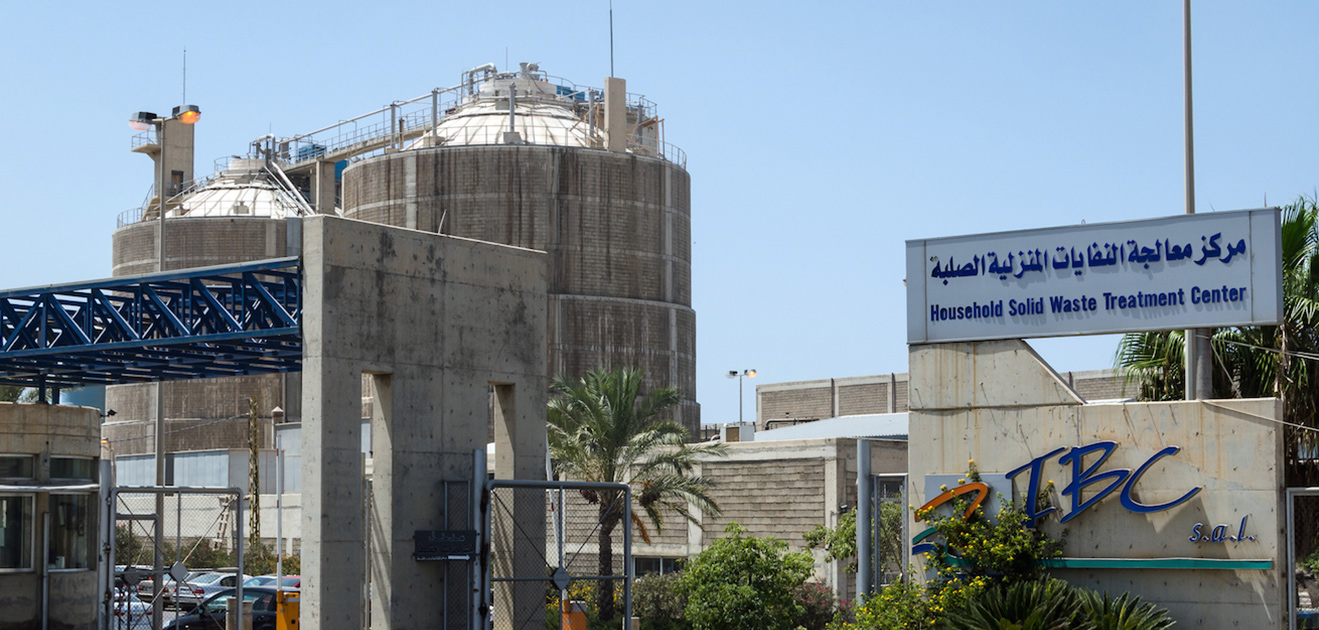IBC came up with a solution to solve the household municipal solid waste for the city of Saida and its suburbs while producing quality compost, generating energy and avoiding the need for a landfill.
The solution is based on mechanical biological treatment. It all starts when the trucks arrive at the Saida plant where they are weighed before they unload the daily collected fresh waste inside the sorting & separation building.
First manual presorting is done to remove bulky items.
At this point, the mechanical sorting starts.
The waste is fed into a trommel screen equipped with bag opening device where the undersize materials go to the organic sorting line.
Then, the oversize materials pass through a density separation and plastic extraction systems before it is conveyed into a sorting platform where workers manually sort the recyclable materials into special containers under the conveyor. Metal is recovered by using a metal overhang separation. Some of the recyclables are sold to other industries for processing while the plastic material is recycled internally inside the plant.
Instead of transferring the refusal to a landfill, they are shredded then fed into a rotary crushing line equipped with feeding hoppers where the reject material is transformed into a stable homogenized crushed inert fill material free from leachate and biogas.
Meanwhile the organic faction is transported into a hopper then conveyed to remove metal and non-metal items before it is shredded to reduce the size of the organic. Then it is conveyed into a patented cleaning continuous mechanism to eliminate other elements which may hinder the rest of the process.
At this stage the wet process starts where the organic is mixed with process water. The suspension allows for the heavy rejects to be removed. The sludge is pumped into holding tanks for secondary cleaning before it is fed into the digesters. During this process, biogas is converted into renewable energy.
At the end of the digestion process, the sludge is first stabilized then dewatered using special polymer with belt press. Next, the dewatered cake is put into windrows where the turner turns, mixes and aerates the material to optimize the maturation process by controlling the temperature and humidity to reach the desired maturation level. The process water is re-circulated in a closed loop back into the initial mixing tank.
Afterwards, the matured compost is refined to be turned into organic fertilizer. A feeding hopper with flow regulator feeds the line which includes a trommel for fine screening and a plastic and light extraction system to leave you with a great organic fertilizer that can be bagged for sale or delivered in bulk.

